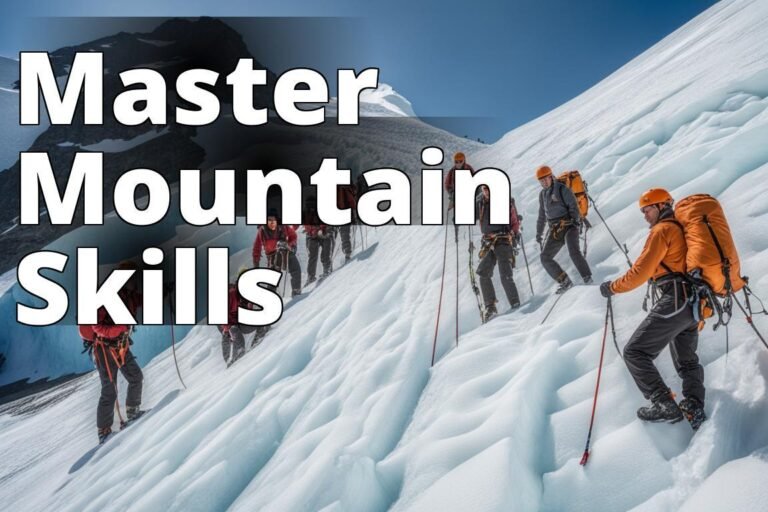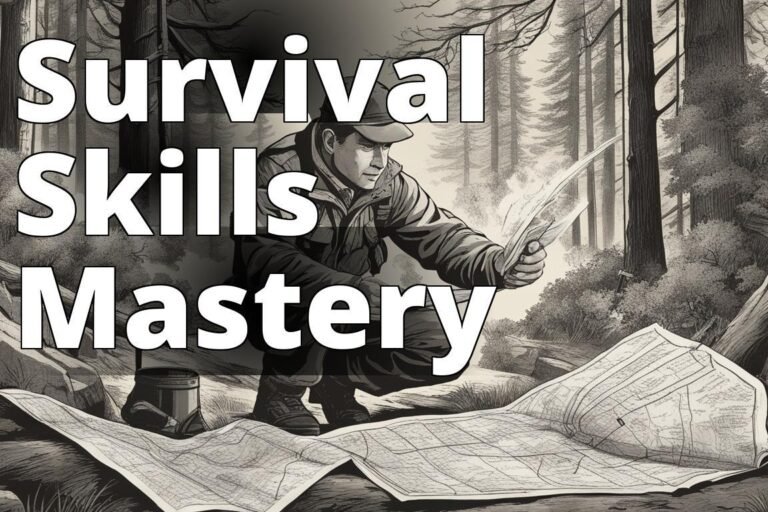10 Basic Survival Skills You Need To Master

The wilderness, with its untamed beauty and unpredictable challenges, demands respect and preparation. Among the most crucial preparations is mastering the best outdoor survival skills. These skills can mean the difference between thriving in challenging situations and facing dire consequences. Let’s delve into the essence of surviving the wilderness, with a blend of personal anecdotes, expert insights, and a sprinkle of stoic wisdom.
Learn 10 Essential Outdoor Survival Skills
- Building a fire: By mastering this skill, you can stay warm and cook food.
- Finding water: Knowing how to locate water sources is crucial for survival.
- Navigating: Learning how to navigate can help you find your way out of the wilderness.
1. Build a Fire
Fire is the primeval comforter: it warms, protects, and serves as a beacon in the wild. The ability to ignite a fire under any circumstances is a fundamental survival skill. Start by gathering dry tinder, kindling, and larger pieces of wood. Structure your fire to ensure airflow and use a variety of ignition sources, from matches to a magnesium fire starter.
Insider Tip: Always carry waterproof matches and learn the art of fire-starting without them. Practice makes perfect.

During a winter trek in the Rockies, my ability to start a fire with damp wood was the difference between a cold, miserable night and a warm, reflective evening under the stars. This skill is both a science and an art.
2. Find Water
Water is life. Knowing how to locate and purify water is a skill that cannot be overstated. Look for water in valleys and low-lying areas or by following animal tracks. Remember, all water found in the wild should be purified before drinking, either by boiling, chemical treatment, or filtration.
Insider Tip: Carry purification tablets and a compact filtration system as a backup.
Stoic Quote: “Water is the soul’s mirror.” – Marcus Aurelius
3. Make a Homemade Compass
Losing your way can happen to the best of us. A homemade compass can be a game-changer. All you need is a needle, a leaf, and a puddle of water. Magnetize the needle by stroking it with silk or wool, then place it gently on the leaf floating in water. The needle will align itself north-south.
This simple yet effective method saw me through dense fog in the Appalachian Trail, proving the old ways can still save the day.
4. Stay Dry
Staying dry isn’t just about comfort; it’s about survival. Wet conditions lead to hypothermia, a dangerous drop in body temperature. Always have waterproof clothing and know how to construct shelters that keep you dry.
During a torrential downpour in the Pacific Northwest, my knowledge of quick shelter building was the thin line between safety and hypothermia.
5. Learn to Tie Knots
Knots are the unsung heroes of survival. From securing shelters and gear to fishing and setting traps, the right knot can save your life. Master at least these three: the bowline, the square knot, and the clove hitch.
Insider Tip: Keep a small rope on you at all times to practice during downtime.

6. Take Care of Your Feet
Your feet are your best friends in the wilderness. Blisters, wet feet, or injuries can immobilize you, turning a survival situation dire. Invest in good quality boots, learn how to properly lace them for different terrain, and always, always keep your feet dry and warm.
Insider Tip: Wool socks and liner socks are a game-changer in foot care.
7. Navigate
The modern reliance on GPS has dulled our innate navigation skills. Learn to use a map and compass, understand topographic maps, and read the landscape. The sun, stars, and even the moss on trees can guide you.
In the wilds of Alaska, my compass and map were my lifelines, proving that old-school navigation is an irreplaceable skill.
8. Signal for Help
Knowing how to signal for help can make you findable. Use three of anything blasts of a whistle, fires, piles of rocks as a universal distress signal. Mirrors, flares, and brightly colored clothing can also attract rescuers’ attention.
Insider Tip: Carry a whistle and a mirror at all times.
9. Find Food
Foraging and hunting are skills that take time to develop, but knowing a few basic edible plants and how to set simple snares can be invaluable. Always err on the side of caution with plants and insects, using a guide to ensure they’re safe to eat.
Insider Tip: Prioritize learning to identify a few high-calorie, easy-to-recognize plants in your area.

10. Stay Calm
The most important survival skill is the ability to stay calm under pressure. Panic clouds judgment and wastes precious energy. Practice mindfulness and stress-management techniques to maintain a clear head in any situation.
Stoic Quote: “You have power over your mind – not outside events. Realize this, and you will find strength.” – Marcus Aurelius
In conclusion, these 10 basic survival skills are foundational to thriving in the unpredictable embrace of the wilderness. Each skill is a thread in the fabric of self-reliance, woven together by practice, patience, and perseverance. Remember, the wilderness does not bend to will or whim; it demands respect, preparation, and a stoic calmness. Embrace these skills, practice them, and carry them as your shield into the great outdoors.
Affiliate Product: For those looking to enhance their survival skills, consider purchasing a Survival Skills Handbook. This comprehensive guide covers everything from fire building to foraging, a must-have for any outdoor adventurer.
For further reading and to deepen your survival skill set, explore our other resources:
- Why You Should Learn Outdoor Survival Skills
- How to Survive Lost in the Wilderness
- Beginner Bushcraft Skills
- Emergency Outdoor Survival Pack Ideas
- Best Emergency Medical to Know in the Outdoors
- Reasons to Learn Bushcraft Skills
- Why You Should Know Emergency Survival Skills
- Best Mountaineering Skills for Hiking
- Everyday Survival Kit Ideas
- Why You Should Be Self-Reliant in the Outdoors
Mastering these skills not only prepares you for the challenges of the wild but also instills a deeper appreciation for the beauty and rawness of nature. Equip yourself with knowledge, and the wilderness will become a playground of endless adventure.
Questions and Answers
Q.Who can benefit from learning outdoor survival skills?
A.Outdoor enthusiasts, adventurers, hikers, and campers.
Q.What are the essential outdoor survival skills to master?
A.Shelter building, fire starting, navigation, and foraging.
Q.How can I improve my outdoor survival skills?
A.Practice regularly, take courses, and learn from experts.
Q.What if I don’t have much experience in the outdoors?
A.Start with basic skills like fire making and shelter building.
Q.How important is it to know first aid in outdoor survival?
A.Knowing first aid is crucial as emergencies can happen.
Q.What if I struggle with navigation in the wilderness?
A.Learn how to use a compass, map, and practice orienteering.









